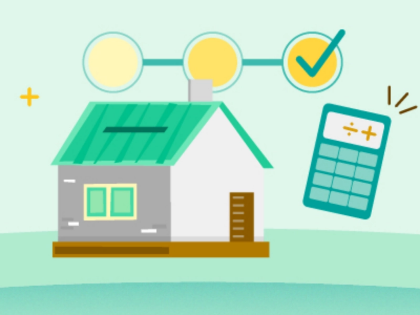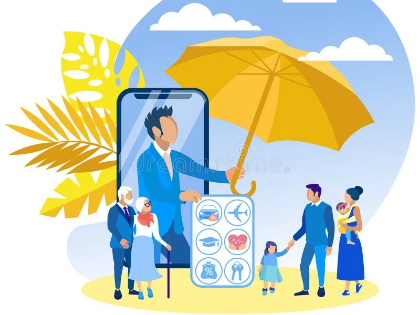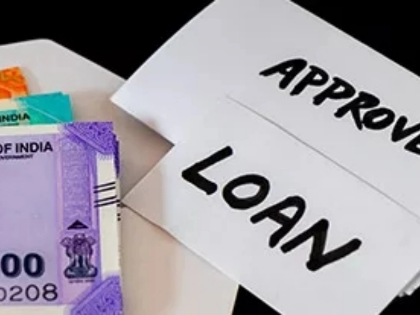Mortgages for First-Time Buyers: Personalized Options to Meet Your Requirements
Purchasing your first house costs a substantial sum of money. Thankfully, there are programs available to assist first-time buyers with closing expenses or down payments. These are usually government-sponsored. Certain ones have lower down payment requirements, while others are dependent on income and credit scores. Customized business solutions are created with your unique objectives and difficulties in mind. They frequently offer scalability, so as your business expands, you won't outgrow them.
1. FHA loans

2. Traditional Credit
 Because conventional mortgages require a smaller down payment, they are a popular option for first-time homebuyers. Any mortgage lender, including banks, credit unions, online lenders, and mortgage brokers, can provide conventional loans. Make sure a conventional loan is the best option for you by speaking with a lender who can evaluate your circumstances and offer tailored advice.
A minimum credit score, debt-to-income ratio, property purchase price, and other requirements specified by the lender are part of the requirements for conventional loans. For example, purchasers who make up to 80% of the local median income are required to make a 5% down payment on normal conventional mortgages. For those who are not first-time purchasers or if they are purchasing a multi-family home, this threshold rises to 15%.
On the other hand, a down payment as little as three percent is permitted for some specialized conventional mortgage programs, such as Freddie Mac's Home Possible and Fannie Mae's HomeReady (also known as 97 LTV loans). PMI payments may also be waived or decreased for conventional lending schemes.
Because conventional mortgages require a smaller down payment, they are a popular option for first-time homebuyers. Any mortgage lender, including banks, credit unions, online lenders, and mortgage brokers, can provide conventional loans. Make sure a conventional loan is the best option for you by speaking with a lender who can evaluate your circumstances and offer tailored advice.
A minimum credit score, debt-to-income ratio, property purchase price, and other requirements specified by the lender are part of the requirements for conventional loans. For example, purchasers who make up to 80% of the local median income are required to make a 5% down payment on normal conventional mortgages. For those who are not first-time purchasers or if they are purchasing a multi-family home, this threshold rises to 15%.
On the other hand, a down payment as little as three percent is permitted for some specialized conventional mortgage programs, such as Freddie Mac's Home Possible and Fannie Mae's HomeReady (also known as 97 LTV loans). PMI payments may also be waived or decreased for conventional lending schemes.
3. Inexpensive homebuyer initiatives
 Since there is no one-size-fits-all mortgage, it's critical to engage with a local lender that can assist you in locating the best financing for your particular circumstances. Additionally, there are numerous state and local initiatives that lower the cost of homeownership for first-time buyers, enabling them to acquire properties with more accommodating down payments, lower mortgage rates, and other benefits.
For those who choose to acquire fixer-upper properties, New York City's RemodelNY program provides funding for both the purchase and renovation of the property. Low-income New Yorkers who satisfy the program's work, savings, and credit standards are the target audience.
Another reasonably priced choice that gives first-time buyers access to low-interest mortgage loans and down payment assistance is Sonya's Achieving the Dream Program. Furthermore, a plan known as the American Dream Downpayment Initiative in Congress would offer many first-time homebuyers a grant of up to $25,000. Families of color and low-income individuals who fulfill the program's income, savings, down payment, and credit requirements are targeted.
Since there is no one-size-fits-all mortgage, it's critical to engage with a local lender that can assist you in locating the best financing for your particular circumstances. Additionally, there are numerous state and local initiatives that lower the cost of homeownership for first-time buyers, enabling them to acquire properties with more accommodating down payments, lower mortgage rates, and other benefits.
For those who choose to acquire fixer-upper properties, New York City's RemodelNY program provides funding for both the purchase and renovation of the property. Low-income New Yorkers who satisfy the program's work, savings, and credit standards are the target audience.
Another reasonably priced choice that gives first-time buyers access to low-interest mortgage loans and down payment assistance is Sonya's Achieving the Dream Program. Furthermore, a plan known as the American Dream Downpayment Initiative in Congress would offer many first-time homebuyers a grant of up to $25,000. Families of color and low-income individuals who fulfill the program's income, savings, down payment, and credit requirements are targeted.
4. Graduate Grants
 Grants and low-interest loans can assist many first-time homeowners with their upfront expenses, such as the down payment, closing costs, and mortgage insurance. To learn more about your alternatives, see a housing counselor and your lender. Consider accepting a gift from friends or relatives if you aren't eligible for a first-time buyer grant (but you could have to pay taxes on the amount). Additionally, research mortgage credit certificates (MCCs) and tax credits for first-time homeowners.
Make sure to compare loan conditions and rates by doing your homework. Application, origination, processing, and underwriting fees are levied by mortgage lenders and can consume your money intended for a down payment or closing costs. These fees can total thousands of dollars. By going to each mortgage lender's website and requesting a rate quote, you may see what costs they charge. Finally, inquire about any programs for employee and member homebuying aid offered by your workplace or union.
Grants and low-interest loans can assist many first-time homeowners with their upfront expenses, such as the down payment, closing costs, and mortgage insurance. To learn more about your alternatives, see a housing counselor and your lender. Consider accepting a gift from friends or relatives if you aren't eligible for a first-time buyer grant (but you could have to pay taxes on the amount). Additionally, research mortgage credit certificates (MCCs) and tax credits for first-time homeowners.
Make sure to compare loan conditions and rates by doing your homework. Application, origination, processing, and underwriting fees are levied by mortgage lenders and can consume your money intended for a down payment or closing costs. These fees can total thousands of dollars. By going to each mortgage lender's website and requesting a rate quote, you may see what costs they charge. Finally, inquire about any programs for employee and member homebuying aid offered by your workplace or union.









